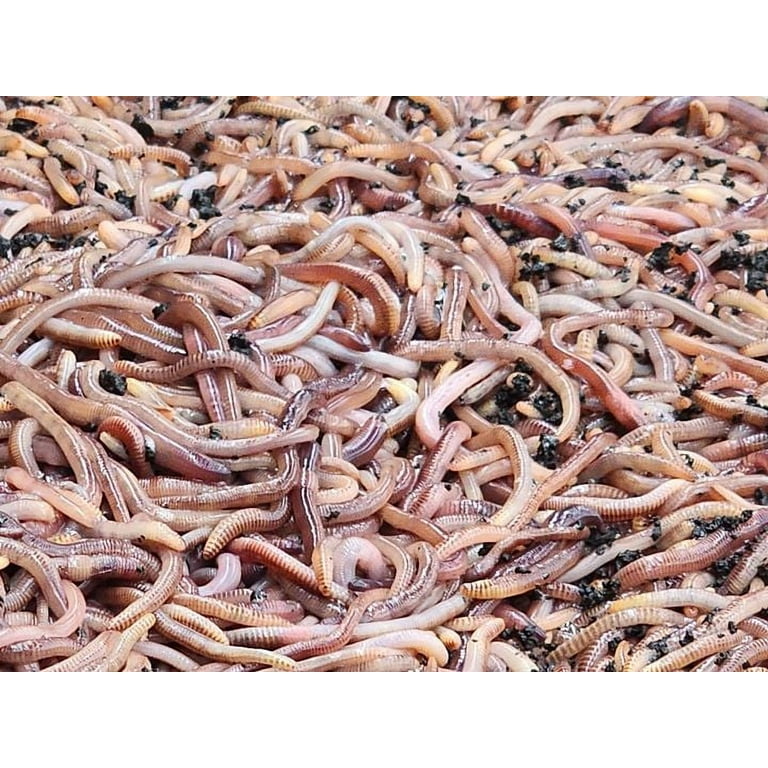All about Where To Find Red Wigglers
All about Where To Find Red Wigglers
Blog Article
The Only Guide to Where To Find Red Wigglers
Table of ContentsOur Where To Find Red Wigglers DiariesThe Best Strategy To Use For Where To Find Red WigglersNot known Incorrect Statements About Where To Find Red Wigglers 10 Simple Techniques For Where To Find Red WigglersGetting The Where To Find Red Wigglers To Work5 Simple Techniques For Where To Find Red Wigglers
For finest results, you intend to fire for about 60-70% dampness degree. The simplest examination for this is to squeeze a handful as tough as you can. At the best moisture degrees which is just under 70% that handful need to barely yield one decrease of liquid. pH in a worm bin is pretty simple to maintain.
The Indian Blue is ravenous, but also chooses a warmer environment and it additionally shows a propensity to escape the bin. The red wiggler is a hardy worm and isn't as picky about its climate. I like to call it the Ford Taurus of vermicomposting worms; you will not boast to your hardcore composting pals that you possess them, yet they will certainly offer you well.
As Tap showed, an angler can do a good bargain to make a worm a lot more attractive.
The Main Principles Of Where To Find Red Wigglers
I believe you will certainly as well if you attempt them. The smaller sized the trout stream, the much better worms job is an axiom that hasn't changed in the 100-plus years given that Perry wrote his write-up. Anglers of his age merely stuck their rickety fly rods via alder tangles and dropped a weighted worm right into a deep opening.
Morning is prime feeding time, and the insubstantial lure's slow-moving descent leaves 5 inches of squirming protein in complete sight for a long time. After you have actually made the actors, keep the bond open and put the pole in a forked stick. The line will certainly fall off the rod in sluggish loopholes as the worm works out, however usually the slow loops will end up being a blur, and the morning will instantly obtain rather interesting.
I typically use a whole 'crawler, favor marabou clothing, and go down the pole for two or 3 secs when I get a hit.
If it's there, set the hook with a move instead than a jerk. When in a while you'll discover yourself hooked to those slow-moving, hearty tugs, and really feel the weight of a great walleye.
The Ultimate Guide To Where To Find Red Wigglers
When the heavy walleyes proceed to the big-water shoals in the late summertime, attempt going after them with a bucktail jig and a 1-inch pinch of nightcrawler. The lure covers the hook point, deflects weeds, and offers a preference of target. With nothing dangling or waving, it remains safe and secure despite existing, casts, or enthusiastic panfish.
Whether you're wading or fishing from a watercraft, wandering worms is among the great browsing strategies for bigger rivers. For trout, a spade-dug, 4-inch yard worm is the right size; for bass, walleyes, and steelhead, a nightcrawler might be a far better choice. The secret is to wander the lure through feeding and holding areas because fish in present are not mosting likely to chase down the bait, as they may in still water.
Strikes will come as a sharp pull instead of a pull or rap. Fish the transitions: mouths of tributaries, bank-side slicks, and the edges of huge pools. As the late Ed Zern, Field & Stream's terrific humorist, when put it: Fishermens are birthed honest yet they get over it. His rule relates to any kind of variety of angling maneuvers, including the matter of including an item of worm to a wet fly.

About Where To Find Red Wigglers
Include a couple of hundred more worms and feed them 2 times a week. Keep the bed linen wet but not wet. On the menu: lettuce, fruit and vegetable waste, and the occasional nongreasy extra.
Simply like veggie scraps, you can take your used coffee premises and include them to a worm box. Worms like eating coffee grounds.
When the hefty walleyes carry on to the big-water shoals in the late summertime, try going after them with a bucktail jig and a 1-inch pinch of nightcrawler. The lure covers the hook point, disperses weeds, and uses a preference of prey. With absolutely nothing dangling or waving, it remains secure no matter present, casts, or enthusiastic panfish.
Where To Find Red Wigglers Things To Know Before You Buy
Whether you're wading or angling from a boat, drifting worms is just one of the wonderful searching methods for bigger rivers. Where To Find Red Wigglers. redirected here For trout, a spade-dug, 4-inch yard worm is the right size; for bass, walleyes, and steelhead, a nightcrawler might be a far better choice. The secret is to wander the bait through feeding and holding locations since fish in current are not mosting likely to ferret out the bait, as they could in still water
Fish the shifts: mouths of tributaries, bank-side slicks, and the edges of huge pools. His adage applies to any type of number of angling maneuvers, including the matter of adding an item of worm to a damp fly.
Yet elevating your very own lure indicates you can slide out of your house and hit the pond prior to Mother comes homejust like in the old days. Right here's how to maintain a worm box: Cut a sheet of CDX-grade plywood, which is made with waterproof adhesives, to your dimensions. Accomplish with each other and pierce a loads 12-inch holes in the bottom for water drainage.
The Definitive Guide for Where To Find Red Wigglers
Fill it with shredded newspaper, leaves, peat moss, and dirt. Moisten lightly. Cover and allow sit for a week. Include a couple of hundred worms and feed them two times a week. look what i found Maintain the bed linen wet but not damp. On the menu: lettuce, vegetables and fruit waste, and the periodic nongreasy extra.
Just like veggie scraps, you can take your utilized coffee premises and include them to a worm box. Worms love eating coffee grounds.
Report this page